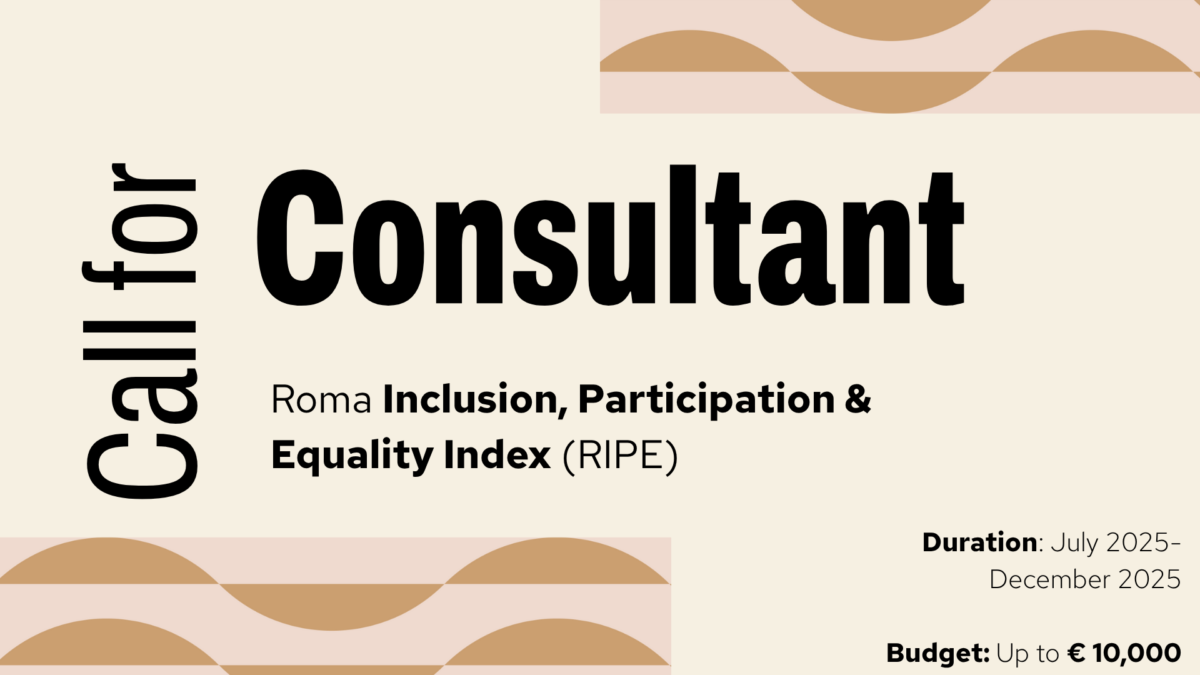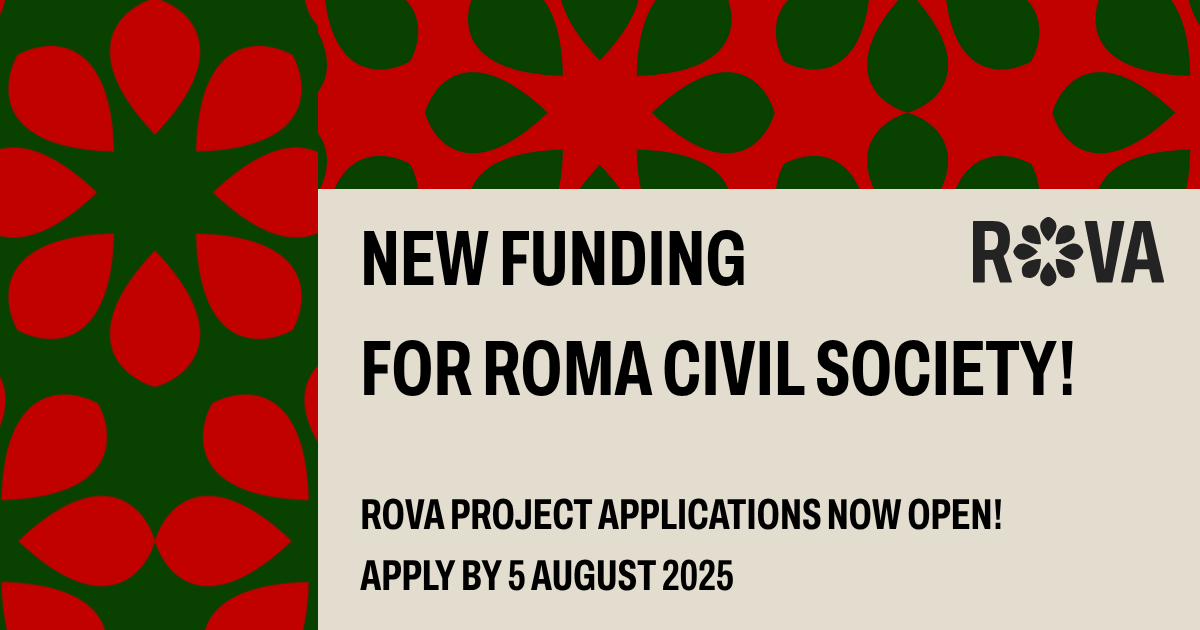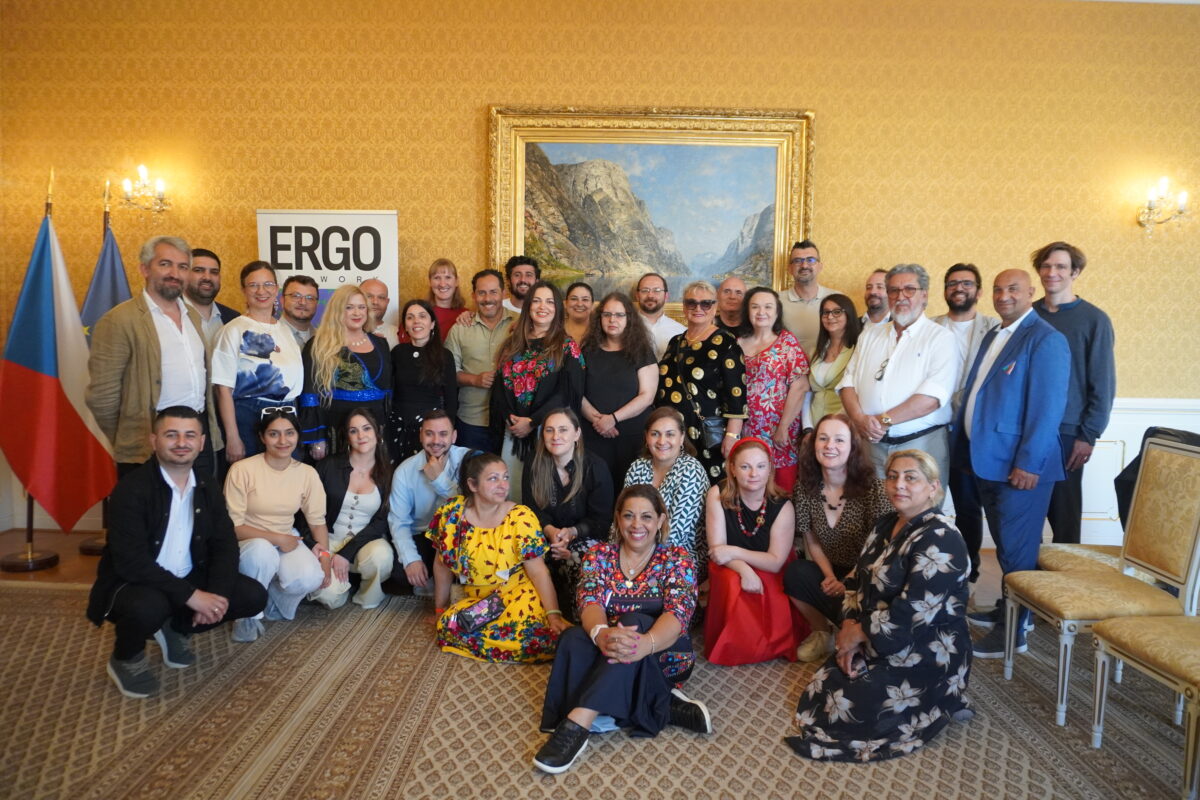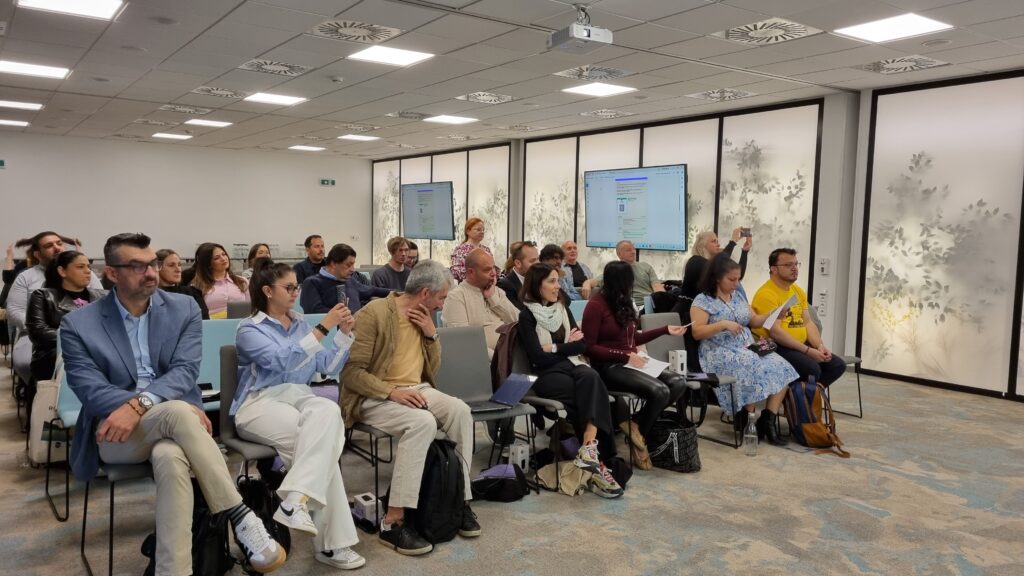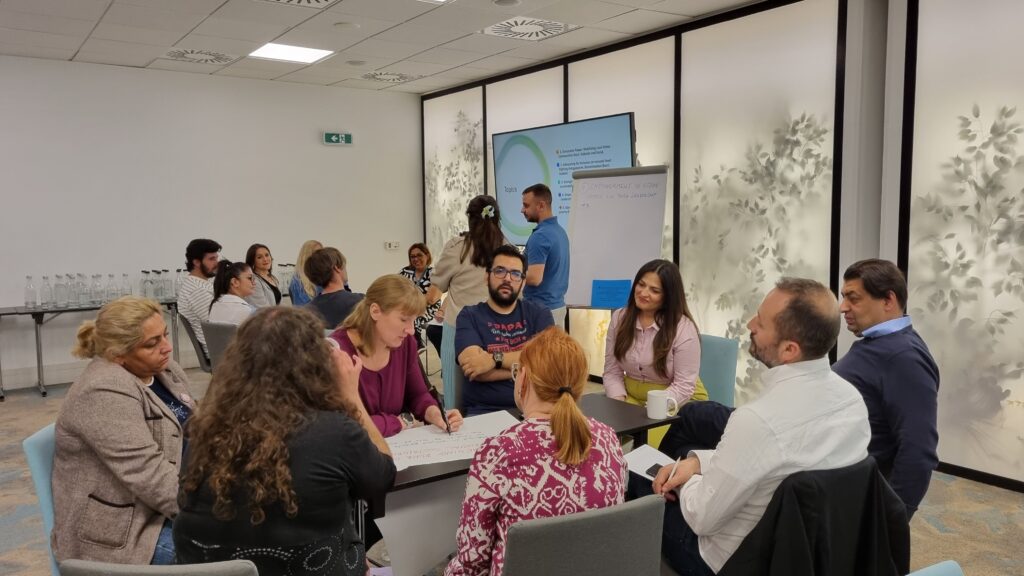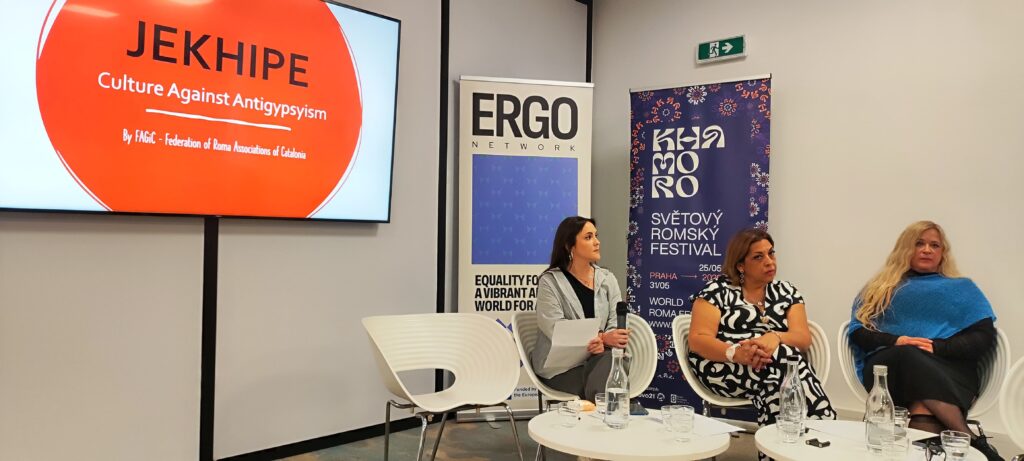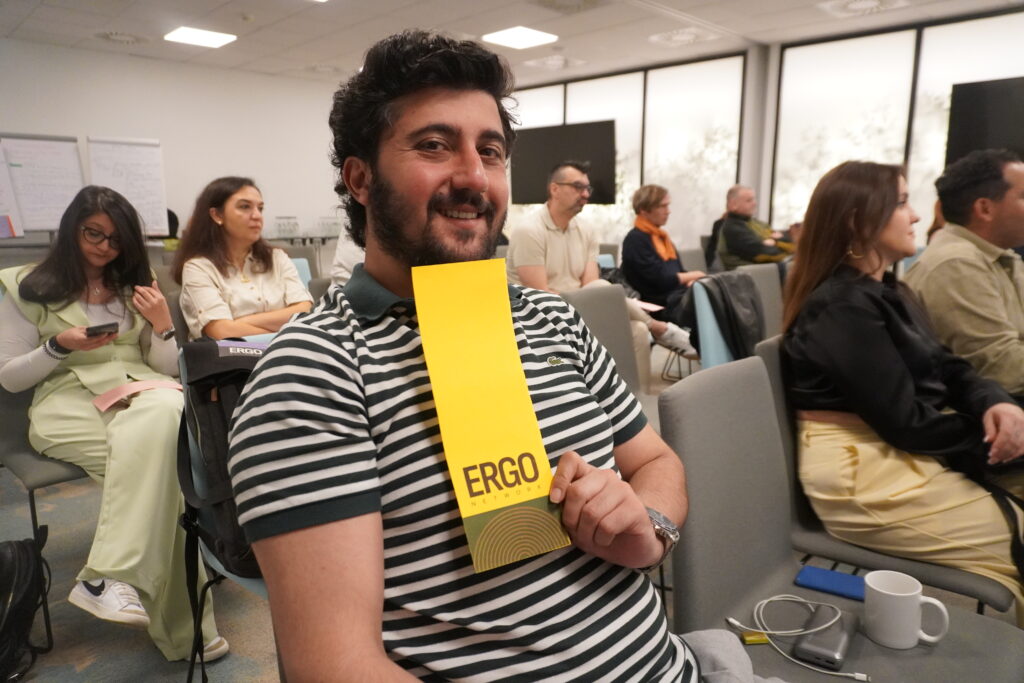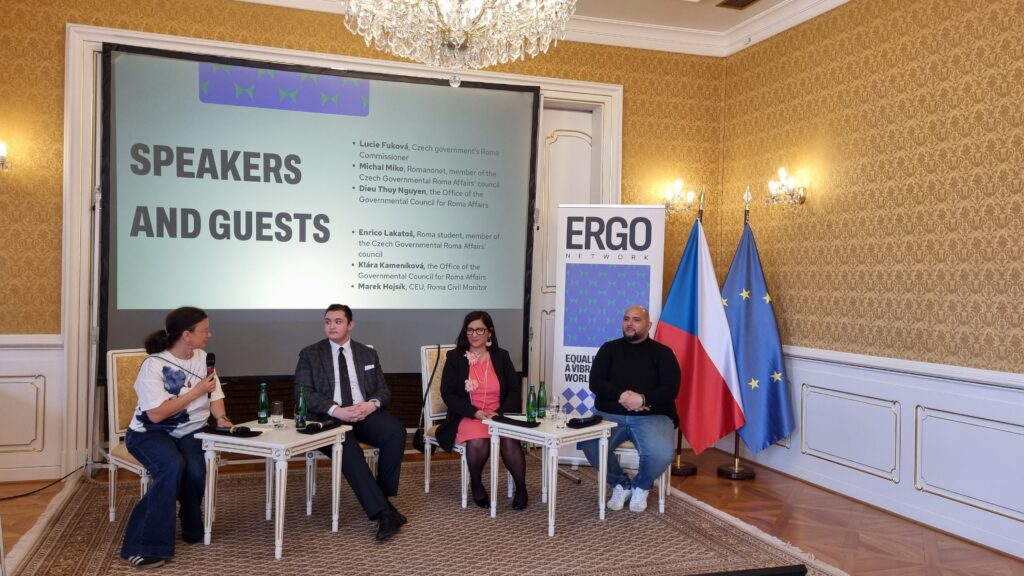Call for Consultant – Roma Inclusion, Participation & Equality Index (RIPE)
ERGO Network is seeking a consultant to contribute to research and activities related to Roma Inclusion, Participation & Equality. The consultancy will run for approximately six months (from July 2025) and will require a comprehensive study and coordination across multiple thematic areas, covering several European countries. The work will combine desk research with grassroots-level data collection.
ERGO Network
ERGO Network (www.ergonetwork.org) brings together more than 30 members from across Europe and supports organisations with a common focus on Roma grassroots empowerment and equal citizenship to combat antigypsyism. We mobilise and connect organisations and individuals who share our values – active citizenship, shared responsibility, and passion – to strengthen Roma civil society involvement in decision-making at local, national, and European levels, and to address gaps in policies targeting Roma communities.
Our office is based in Brussels.
Background
The Roma Inclusion, Participation & Equality Index (RIPE) is a new tool developed by ERGO Network to address systemic discrimination against Roma communities in various European states. RIPE offers a unified framework to assess and compare the situation of Roma populations across different political, social, and economic contexts.
Inspired by established human rights mechanisms, the Index systematically assesses a broad range of rights and indicators, ensuring comprehensive coverage from human rights to socio-economic conditions. It uses empirical data to advocate for policies that prevent discrimination and promote Roma inclusion, equality, and participation, while investing in grassroots-level engagement.
Historical Context and Ongoing Challenges
The Roma are Europe’s largest ethnic minority and have faced severe persecution and marginalisation both historically and today. Despite various national and international frameworks, many Roma continue to live in poverty and lack access to basic services such as employment, education, healthcare, and housing.
This discrimination must be understood within the scope of Antigypsyism — a specific, violent, and persistent form of racism rooted in ideologies of racial superiority. It manifests as dehumanisation, institutional racism, hate speech, violence, exploitation, stigmatisation, and structural exclusion.
Recent surveys, such as those by the European Union Agency for Fundamental Rights (FRA), underscore the continued challenges Roma face in housing, employment, education, hate speech, and hate crimes, exacerbated by deeply entrenched antigypsyism.
Importance of the ERGO Index
The RIPE Index systematically captures and analyzes data on the social conditions of Roma, their experiences of discrimination, and their access to opportunities across European States. This tool:
- Standardised Measurement: Facilitates comparisons and tracking progress across countries.
- Shapes Policy: Provides detailed data to inform national and international policies.
- Promotes Inclusion and Rights: Identifies areas where Roma rights are inadequately protected and advocates for inclusive policies.
- Raises Awareness and Engagement: Enhances dialogue and cooperation among Roma communities, civil society, and governments.
- Directs Resource Allocation: Ensures investments in Roma inclusion projects are targeted effectively.
- Creates Policy Nexus: Correlates instances of discrimination with policy outcomes, refining strategies for future policies.
Categories in the ERGO RIPE Index
- Legal Framework
- Policy Measures
- Funding
- Data Collection and Monitoring
- Civil, Political Participation & Decision-Making
- Access to Justice
- Hate Speech & Hate Crimes
- Truth & Reconciliation: Antigypsyism, transitional justice processes, memorialization, and
- historical recognition.
- Additional Considerations (eg, migration policies)
- Media and Public Perception
The countries covered by the consultancy services requested are Croatia, France, Hungary, Ireland, Moldova, Montenegro, Poland, Serbia, Türkiye, and Ukraine.
Key Tasks
- Conduct research and contribute to an analysis report based on the ERGO Network’s methodology.
- Oversee national-level data collection by Roma civil society representatives.
- Provide data and analysis related to antigypsyism and discrimination standards.
- Conduct desk research and synthesise findings with national input.
- Compile monitoring results into a comprehensive report.
Consultant Profile
- Proven experience in research and methodology development.
- Strong analytical and report writing skills.
- Knowledge of relevant human rights standards for this call and awareness of Romani civil society.
- Fluency in English (speaking and writing) is essential.
Timeframe and Budget
- Duration: July 2025 – December 2025
- Budget: Up to € 10,000 (including VAT)
How to Apply
Application Requirements
- Detailed CV demonstrating clearly that the tenderer has relevant experience.
- Sample of previous relevant work.
- Price offer for the total consultancy duration
Send your application to i.mihalache@ergonetwork.org by July 3, 2025, 23:59 CET. For further questions and more information on the methodology and deliverables, contact Isabela Mihalache at i.mihalache@ergonetwork.org

